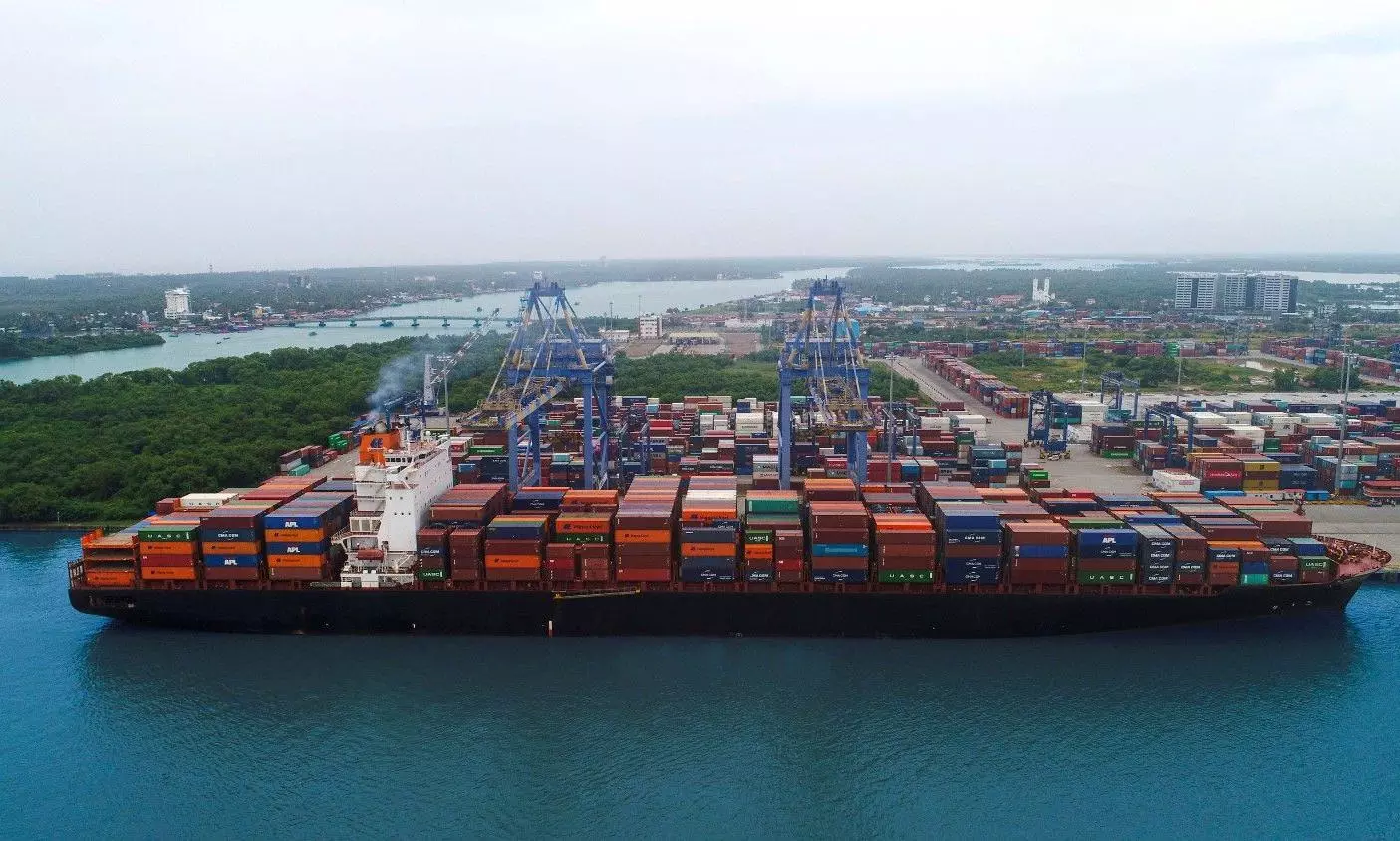Inside DP World’s push for automation and AI in Indian port operations
In an interview, Ravinder Johal of DP World explains how technology and integration are reshaping India’s port ecosystem.

From automated terminals to AI-driven predictive systems and IoT-enabled port operations, technology is transforming India’s maritime logistics landscape. In this conversation with Indian Transport & Logistics News, Ravinder Johal, Chief Operating Officer – Ports & Terminals, Operations & Commercial, Middle East, North Africa and India Subcontinent, DP World, shares how automation, emerging technologies, and multimodal integration are shaping the company’s operations, enhancing efficiency and safety, and strengthening India’s trade competitiveness through smarter, connected, and more resilient port ecosystems.
DP World operates one of India’s most automated terminals. What operational lessons have emerged from this experience, and how are you preparing for the challenges of rising capacity demand and the arrival of larger vessels?
Automation delivers real value only when embedded within a port-led ecosystem and enhances ease of doing business for our direct and indirect customers. By integrating multimodal networks across sea, rail and road we’ve created seamless, safer, and more efficient supply chains. Automation assists in predicting future trends that helps in tactical and strategic decision making ahead of time to cater to constantly changing business demands. It has also made our operations safer, enabled advanced workforce training, and reduced waste, making processes leaner and more efficient.
As part of our commitment to trade, we are expanding capacity through broader infrastructure upgrades. New equipment at Mundra and Cochin, together with the upcoming Tuna Tekra terminal, will increase our combined capacity from approximately 6 million TEUs to 8.19 million TEUs.
How is DP World applying emerging technologies such as IoT, AI, and GenAI within its Indian operations to drive efficiency and resilience across ports and terminals?
Globally, AI-driven supply chain solutions have led to rapid data processing, accurate trend prediction, and automation of repetitive tasks, thus improving efficiency by nearly 40%. The Unified Logistics Interface Platform (ULIP) uses AI-driven predictive analytics for multimodal route optimisation. We use AI and IoT to make ports smarter and safer—optimising terminal planning and operations, monitoring equipment in real time, and detecting safety breaches instantly.
From predictive maintenance to AI-controlled energy systems, technology is embedding resilience and efficiency into every layer of our operations. DP World has deployed IoT-enabled AI models support predictive maintenance through equipment condition monitoring and anomaly detection, improving uptime and reliability.
DP World’s AI-powered inventory systems, along with AI-controlled lighting and climate systems, enhance energy efficiency and productivity across all our port terminals. Configurable for multiple violations and integrated with automated public address alerts, these technologies strengthen on-ground safety and enable targeted operational improvements across our port terminal operations. By embedding compliance and safety into daily operations, we are building a smarter, safer, and more resilient logistics ecosystem.
Ravinder Johal, COO - Ports & Terminals, Operations & Commercial, Middle East, North Africa & India Subcontinent, DP World
DP World has been investing in multimodal logistics parks and inland terminals in India. How do these assets complement port operations and improve cargo connectivity for shippers?
With five container terminals handling 6 million TEUs annually which is majorly origin destination cargo, three Free Trade and Warehousing Zones (FTWZ), 5 million sq. ft. of warehousing, five Container Freight Stations, a strong network of express logistics spanning 15,000 pin codes, and one of the largest private rail freight operations with fleet of over 16,000 containers and seven inland rail terminals, we provide integrated solutions that connect ports to factories and regional distribution centres. The Tuna-Tekra mega-terminal will add 2.19 million TEU of annual capacity with a 1,100-metre berth, further enhancing India’s ability to handle larger vessels and higher cargo volumes. Together, this network enables shippers to move cargo more efficiently, with greater reliability, visibility, and resilience across the supply chain.
As DP World continues to invest in multimodal infrastructure in India, our supply chain network is well-placed to contribute to a more coordinated and service-efficient trade environment.
With India pushing to be a global manufacturing hub, what role is DP World playing in supporting export-oriented industries such as automotive, electronics, and semiconductors?
Through our existing network of assets in India, backed by multimodal connectivity and customised solutions, we are partnering with high-value sectors like automotive, EV, and electronics to seamlessly integrate global supply chains with minimal disruption.
To support India’s ambition to increase exports and become a global manufacturing hub, DP World is playing a critical role by leveraging its extensive logistics infrastructure in India and globally to serve diverse industries. Our FTWZs, strategically located near three major ports — Nhava Sheva, Cochin, and Chennai — are poised to become vital hubs for global distribution, supported by enhanced regulatory clarity and streamlined compliance. These zones enable global businesses to operate in a foreign deemed territory without setting up a local entity while exploring new markets.
Given India’s evolving trade agreements and customs frameworks, how is DP World leveraging its global network and free trade zone expertise to enhance India’s competitiveness in global trade?
DP World is creating a transformative marketplace to strengthen trade links between India, the Middle East, and beyond, offering port led ecosystem and retail market access backed by world-class logistics.
DP World’s global network spans six continents, supported by a team of over 100,000 employees. By combining global infrastructure with local expertise, we deliver seamless supply chain solutions. From Ports and Terminals to Marine Services, Logistics and Technology, we leverage innovation to create better ways to trade, minimising disruptions from the factory floor to the customer’s door.

Nikitha Sebastian
I'm a media professional with a background in journalism, psychology, and English, which provides me with a solid foundation in research, storytelling, and multimedia reporting. My diverse skill set spans writing, interviewing, and content creation with a deep understanding of human behaviour and communication.


